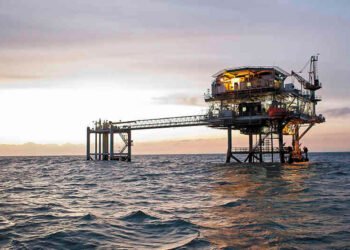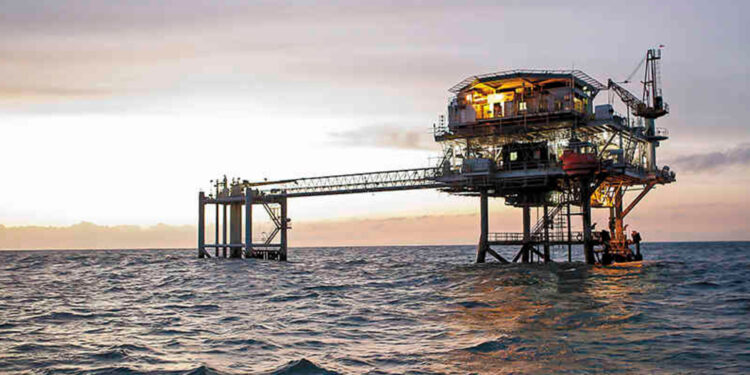The Minerals Income and Investment Fund (MIIF) has embarked on a groundbreaking initiative to bolster Ghana’s mining industry, launching a small-scale gold mining incubation pilot program aimed at formalizing the sector.
This initiative, targeting the transformation of small-scale mining entities into medium to large-scale businesses, underscores MIIF’s commitment to sustainable development and sectoral growth.
The pilot program offers comprehensive support to ten selected small-scale miners. The focus areas include enhancing corporate governance, providing capital, implementing a gold production traceability mechanism, and facilitating market access through MIIF’s gold trade desk. These measures are designed to create a blueprint for a larger rollout, with the potential to significantly boost Ghana’s annual revenue from small-scale gold mining.
Edward Nana Yaw Koranteng, CEO of MIIF, highlights the transformative potential of this initiative.
“Illegal mining slashes our small-scale mining revenue by 40%. The program will tackle this by formalizing the sector. With gold found in almost every region in Ghana, this small-scale focus can unlock nationwide development. It will be the most revolutionary support for artisanal mining in Africa’s history.”
Edward Nana Yaw Koranteng
Alongside this, MIIF is implementing a robust strategy to nurture a skilled workforce within the mining industry. A key component of this strategy is the construction of a technical training center at the University of Mines and Technology, which will include a jewelry-making center.
This initiative aims to retain skilled goldsmiths and enhance the value addition in the jewelry industry, thereby capturing more value from Ghana’s gold.
While gold remains a cornerstone of Ghana’s mining sector, the country is seeking to diversify its mineral portfolio. Koranteng points out that gold constitutes about 90% of the mining revenue, but Ghana is endowed with other significant mineral resources such as lithium, barite, graphite, copper, cobalt, uranium, iron ore, and industrial salt.
MIIF’s investment in the Ada Songhor Pans salt project, Sub-Saharan Africa’s largest salt project led by Electrochem, exemplifies its commitment to diversifying Ghana’s mining industry. Concurrently, MIIF is leveraging its lithium resources to support the Ghana automobile development plan.
“Our focus on lithium is to leverage its industrial importance to support areas such as battery making, research, and to make Ghana the EV hub of sub-Saharan Africa. We plan to leverage the African Free Trade to make us a proper hub for batteries, solar panels, and cars.”
Edward Nana Yaw Koranteng
In addition to these ventures, MIIF is investing in newly discovered graphite deposits in northern Ghana and exploring value addition for the country’s bauxite reserves as part of the planned Ghana-integrated aluminium development plan.
Extensiom of Vision to the Capital Markets
MIIF’s strategic vision extends to the capital markets. The institution is developing a gold-backed Exchange-Traded Fund (ETF) to be listed on Ghana’s Stock Exchange.
It has also supported the listings of Asante Gold and Atlantic Lithium, with substantial investments in these companies. “Our small-scale mining program also aims to prepare companies for potential stock exchange listings,” Koranteng noted.
MIIF’s broader vision is to see similar sovereign wealth funds across Africa, empowering countries to develop their mining sectors and share best practices.
“We have a vision where we see the likes of at least 10 MIIFs in other African countries financing major mines through joint ventures and reducing reliance on Western capital. This model empowers African countries to develop their mining sectors and share best practices.”
Edward Nana Yaw Koranteng
As a sovereign minerals wealth fund, MIIF manages the Ghanaian government’s equity interest in mining companies and collects mineral royalties from all mining operations. The institution’s growth is evident; from managing assets worth US$195 million in October 2021, it now oversees assets north of US$1.5 billion.
Ghana’s small-scale mining sector, contributing up to 40% of the nation’s gold output, plays a crucial role in the economy. This sector, however, faces significant challenges from illegal mining activities.
“Ghana’s small-scale gold mining sector employs more than 10% of the Ghanaian population, while large-scale mining employs just below 40,000 in total, which makes the formalization of the small-scale sector imperative.”
Edward Nana Yaw Koranteng
MIIF’s initiatives not only promise to enhance the mining sector’s economic contributions but also aim to foster sustainable development, skill acquisition, and broad-based growth across Ghana and potentially, the entire African continent.
READ ALSO: Mid-Year Budget to Prioritize Housing and Road Financing via PPP, No New Taxes- Finance Minister



















